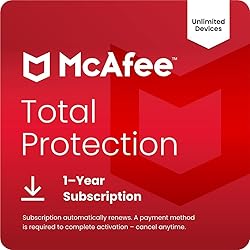ProtonVPN vs EU Internet Providers: Stop ISP Tracking
ProtonVPN vs EU Internet providers is a crucial debate for anyone concerned about online privacy and the risks of ISP tracking. In today’s digital world, every click, website visit, and data packet can be monitored by your Internet Service Provider (ISP), especially across Europe, where both technology trends and privacy laws intersect. Understanding the ways to stop ISP tracking is vital for users who value their privacy and want robust protection in a world of increasing surveillance.
Understanding ISP Tracking and Data Privacy in the EU
Internet Service Providers in the EU play a central role in routing and managing traffic for millions of users. However, this role also provides ISPs with direct access to your browsing history, app usage, downloads, and even some unencrypted communication. While the General Data Protection Regulation (GDPR) set new standards for protecting personal data, ISPs still collect and sometimes retain connection logs under the pretext of national security, law enforcement, or commercial interests.
EU internet providers impose varied policies around data retention and ISP tracking. Some countries enforce strict data storage requirements, while others allow more leniency. Regardless, the threat of surveillance exists—with or without consent. This makes finding solutions to stop ISP tracking all the more important.
VPNs: The Essential Privacy Solution
A Virtual Private Network (VPN) is a tool designed to mask your online activity by encrypting your internet traffic and routing it through secure servers. VPNs have surged in popularity as users look for ways to secure their digital footprint from prying eyes, whether government, advertisers, or ISPs.
Among the numerous VPN providers, ProtonVPN stands out—particularly for users in the EU. Let’s dissect why.
ProtonVPN: Advanced Protection Against ISP Monitoring
ProtonVPN is recognized for its rigorous approach to privacy and security. Originating from Switzerland—a country renowned for its strong privacy laws—ProtonVPN operates with a strict no-logs policy. This means that they don’t track or store user activity, making it extremely difficult for third-parties, including ISPs, to monitor or retrieve your internet history.
Key Features that Set ProtonVPN Apart:
– Strong Encryption: ProtonVPN uses high-strength AES-256 encryption and supports secure protocols like OpenVPN, WireGuard, and IKEv2/IPSec, ensuring your connection is always private.
– Secure Core Network: This unique feature routes your traffic through multiple servers in privacy-friendly countries before accessing the wider internet, adding multiple layers of obfuscation against surveillance and ISP tracking.
– No-Logs Policy: Unlike some competitors, ProtonVPN doesn’t keep connection or activity records, even when using EU servers subject to stricter data obligations.
– DNS Leak Protection and Kill Switch: These safeguards ensure that even if your VPN connection drops, your ISP won’t suddenly see your real browsing activity.
EU Internet Providers: Where Privacy Falls Short
While some EU internet providers claim transparency and may adhere to GDPR, that doesn’t always mean your data is safe from scrutiny. Many still retain metadata or connection logs, and some are obligated to cooperate with local authorities upon request. Furthermore, your ISP—by default—routes all of your unencrypted traffic, making you vulnerable to behavioral profiling, advertising, and potential data breaches.
– Metadata Logging: Even when ISPs do not directly log content, they can store connection timestamps, IP addresses, and websites visited.
– Policy Variations: Countries like Germany, France, and the UK have unique requirements for what ISPs must retain, with compliance not always being clear-cut.
– User Controls: Rarely do EU internet providers give meaningful tools for users to manage or erase their data on demand.
ProtonVPN vs EU Internet Providers: Which Protects You Best?
When comparing ProtonVPN vs EU internet providers for stopping ISP tracking, the distinction is clear. ProtonVPN encrypts your data and anonymizes your online activity, making it invisible to ISPs. In contrast, most EU ISPs log some form of data, regardless of user preferences or enhanced local laws. For ultimate privacy, using a VPN like ProtonVPN is the strongest line of defense.
Take Control of Your Online Privacy
Europe has set ambitious regulations for data protection, but real privacy requires more than legislation. By using ProtonVPN in tandem with other security best practices—like enabling strong passwords, using encrypted messaging, and updating software regularly—you can stop ISP tracking and regain control of your digital identity.
In an era where your data is a valuable asset, taking proactive measures is not just smart—it’s essential. Explore VPN solutions that outpace even robust local privacy laws, and enjoy true freedom on the internet.


